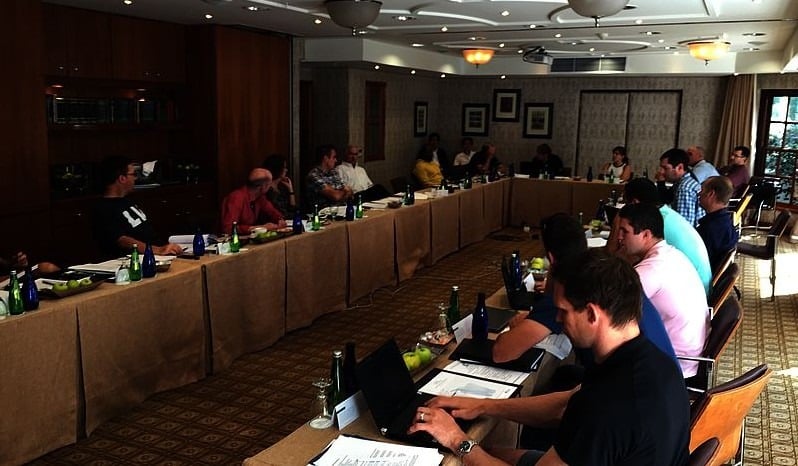An historic coming together of the world’s leading athletes and their unions in Cape Town this week has resulted in the establishment of UNI World Athletes, a global trade nion that brings together over 85,000 athletes across the world’s major professional sports.
Established at its inaugural world assembly under the auspices of UNI Global Union, UNI World Athletes unites champions from sports including football, cricket, rugby union, ice hockey, baseball, American football, basketball, rugby league, netball, skiing, cycling and Australian football.
The phalanx boasts the leadership of the world’s most influential athletes’ unions, with a ten member Executive Committee being unanimously elected under the Presidency of National Hockey League Players Association Executive Director Don Fehr.
Fehr is joined on the Executive Committee by:
First Vice President Brendan Schwab, who is also a Vice President of FIFPro, the world footballers’ association, which is also represented by FIFPro Board member Dejan Stefanovic and FIFPro Director International Relations, Frederique Winia.
Second Vice President Jean François Reymond, the Director of EU Athletes
Rob Nichol, the CEO of the International Rugby Players’ Association
Ian Smith, the COO of the Federation of International Cricketers’ Associations
DeMaurice Smith, the Executive Director of the National Football League Players’ Association
Paul Marsh, the CEO of the Australian Football League Players’ Association and a Board member of the Australian Athletes’ Alliance
Toru Matsubara, the Executive Director of the Japanese Professional Baseball Players’ Association.
The establishment of UNI World Athletes follows three years of close collaboration of athletes unions, a period which has seen increased concerns on the part of athletes over the poor governance of sport coinciding with an increased attack on their basic economic and legal rights.
UNI World Athletes has dedicated itself to advancing six immediate goals:
1. The good governance of world sport
2. The development of effective and proportionate measures to protect the integrity of sport from threats such as doping and match manipulation
3. Athlete health and safety
4. Athlete development and wellbeing, including preparing athletes for life beyond a career which is dangerous, short-term and precarious
5. The protection of the intellectual property rights of athletes
6. Organising athletes throughout the world, to ensure that athletes are intimately involved in the decision-making of their sports.

